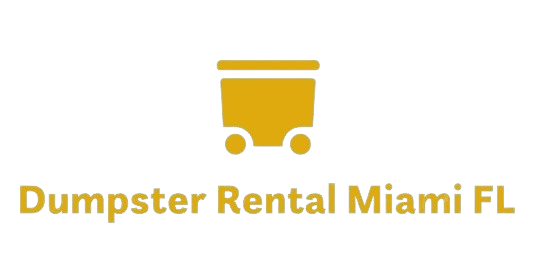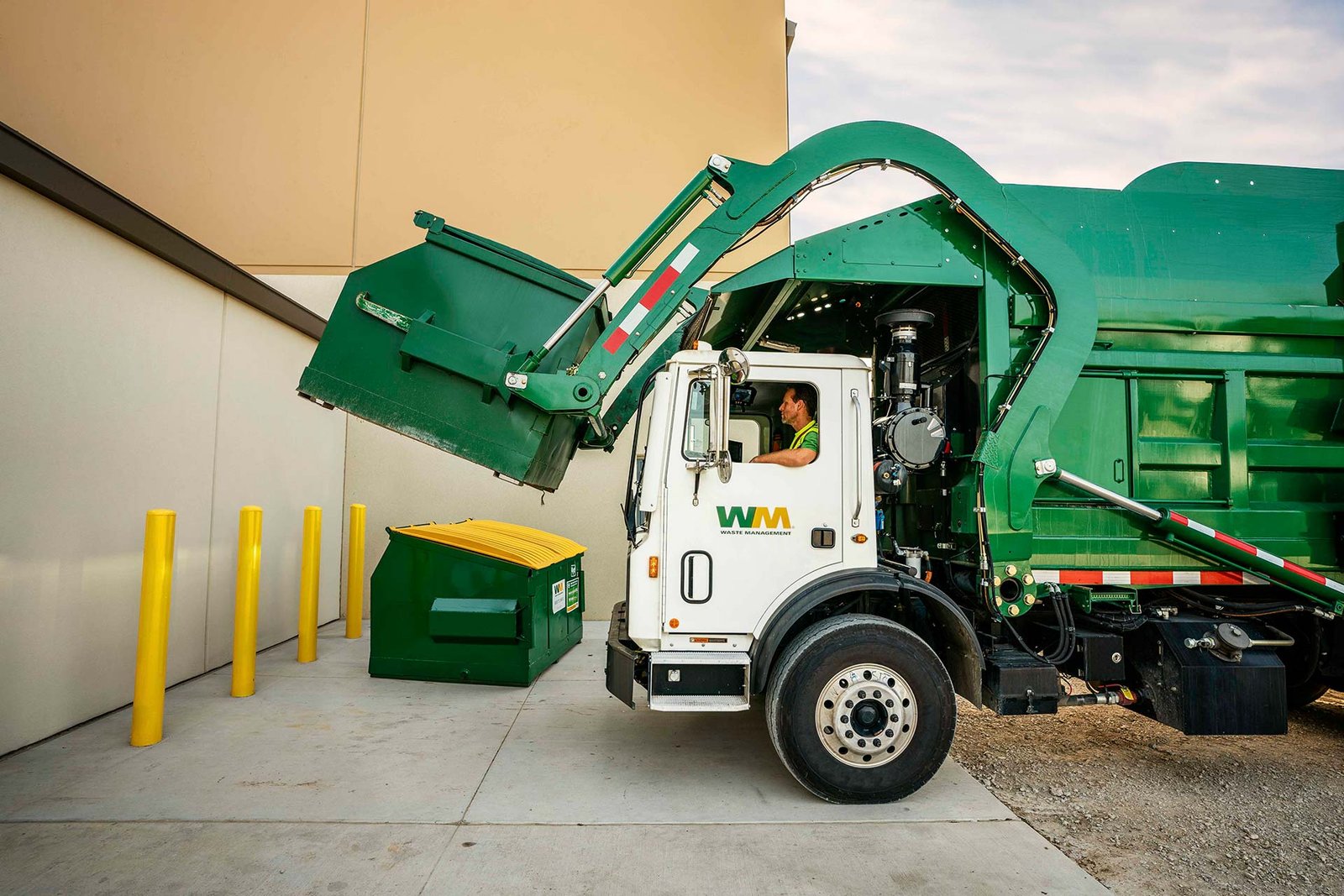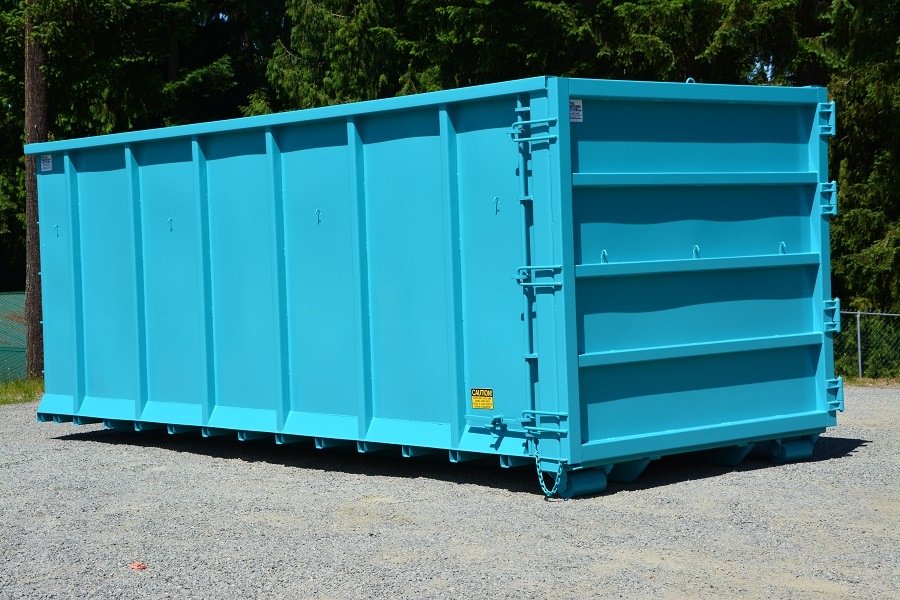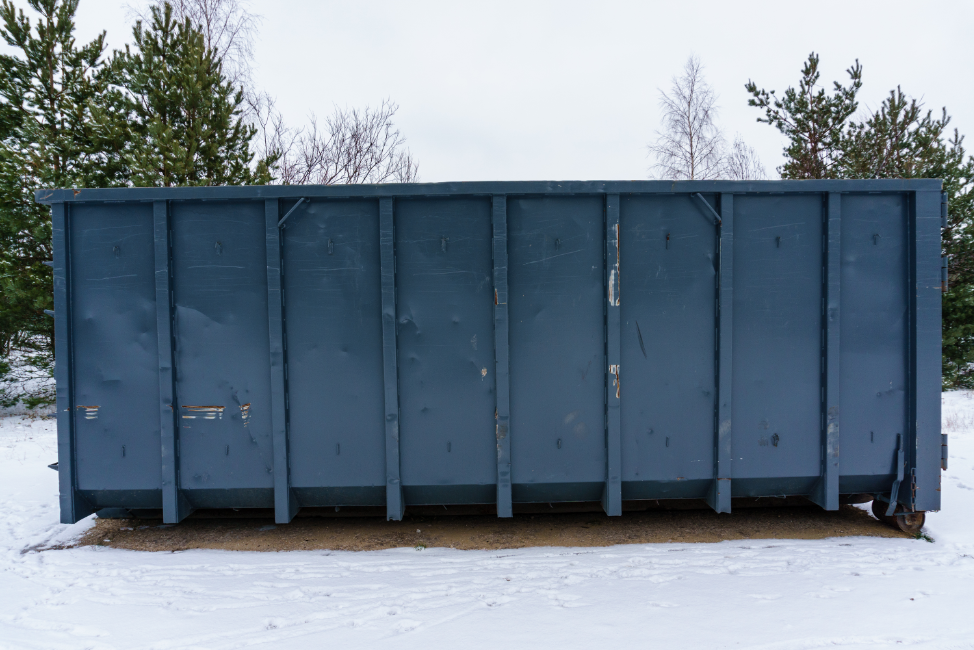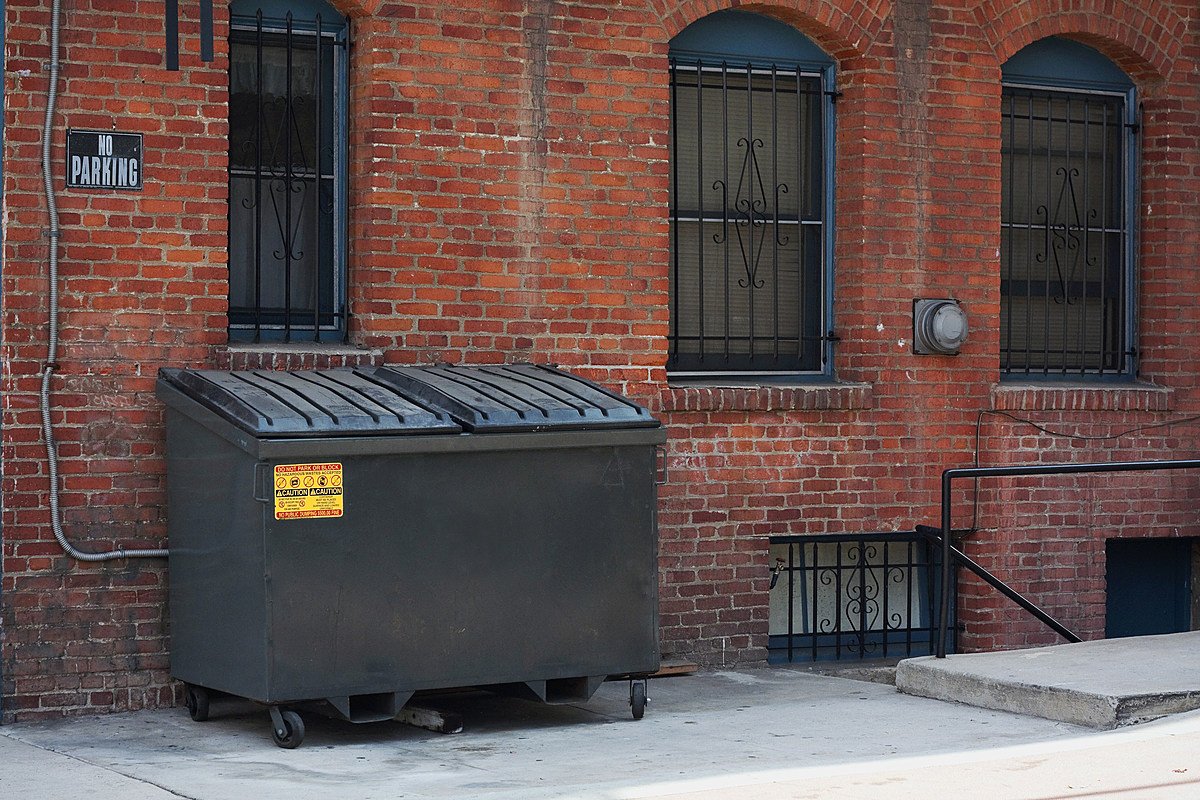Weight restrictions are a crucial consideration when it comes to dumpster rental services in Miami, FL. The weight of the waste materials being disposed of can significantly impact the cost and efficiency of the process. For instance, imagine a hypothetical scenario where a construction company in Miami rents a dumpster for debris removal from their ongoing project. They underestimate the weight of the discarded materials and exceed the weight limit set by the dumpster rental company. As a result, they incur additional charges due to overage fees and experience delays as they have to arrange for an additional dumpster or remove some items to meet the weight requirement.
Understanding weight restrictions is essential not only for cost-effective disposal but also for ensuring compliance with local regulations and maintaining safety standards. Dumpster rental companies impose weight limits based on various factors such as container size, type of waste material, and transportation capacities. By adhering to these restrictions, individuals and businesses can avoid potential issues like extra costs, delivery delays, damage to property or equipment caused by overweight dumpsters, or fines imposed by authorities.
In this article, we will explore the importance of weight restrictions in dumpster rentals in Miami, FL. We will discuss how exceeding weight limits can lead to adverse consequences and offer practical tips on managing waste loads effectively within prescribed guidelines. Additionally, we will provide information on how to estimate the weight of waste materials and discuss strategies for optimizing dumpster space to maximize efficiency and minimize costs.
When it comes to dumpster rentals, weight restrictions are typically expressed in terms of maximum allowable pounds or tons. The specific weight limits may vary depending on factors such as the size of the dumpster, type of waste being disposed of (e.g., construction debris, household junk, etc.), and local regulations. It is crucial to inquire about the weight restrictions with the rental company before finalizing a contract to ensure that you choose an appropriate dumpster size for your needs.
Exceeding weight limits can result in additional charges known as overage fees. These fees are typically calculated based on the excess weight beyond the allowed limit. Overage fees can quickly add up, significantly impacting your budget and overall project expenses. Moreover, going over the weight limit can lead to delays in waste removal if the dumpster rental company requires you to remove some items or arrange for an additional container.
Furthermore, exceeding weight limits poses safety risks as overloaded dumpsters become more unstable during transportation. This can potentially cause damage to property or equipment during pickup or delivery. Additionally, overweight dumpsters may exceed legal load limits imposed by authorities, leading to fines or penalties.
To avoid these issues, it is essential to estimate the weight of your waste materials accurately before renting a dumpster. You can do this by considering the type and volume of waste generated and using online resources or consulting with professionals in waste management for guidance.
Here are some practical tips for managing waste loads within prescribed guidelines:
-
Sort and separate: Separate recyclable materials from non-recyclable ones. Many dumpster rental companies offer recycling options or have different containers designated for specific types of waste.
-
Compact materials: If possible, break down larger items into smaller pieces or compact them tightly inside the dumpster to maximize space utilization without exceeding weight limits.
-
Use proper loading techniques: Distribute weight evenly throughout the dumpster by placing heavier items at the bottom and filling gaps with lighter materials. This helps maintain stability during transportation.
-
Avoid prohibited items: Dumpster rental companies often have restrictions on certain hazardous or prohibited materials. Ensure that you understand and follow these guidelines to avoid complications.
-
Consider multiple dumpsters: If you anticipate generating a significant amount of waste, it may be more cost-effective to rent multiple smaller dumpsters rather than one large container. This allows for better weight distribution and reduces the risk of exceeding weight limits.
In conclusion, understanding and adhering to weight restrictions in dumpster rentals are crucial for cost-effective disposal, compliance with regulations, and maintaining safety standards. By estimating the weight of waste materials accurately, optimizing space utilization, and following proper loading techniques, individuals and businesses can ensure efficient waste management while avoiding additional costs and potential complications associated with exceeding weight limits.
Weight restrictions and their importance
When it comes to renting a dumpster, weight restrictions play a crucial role in ensuring the smooth operation of waste management. To illustrate this point, let’s consider the case of a construction company that rents a dumpster without paying attention to its weight limits. This hypothetical scenario serves as an example of how overlooking weight restrictions can lead to complications.
Firstly, exceeding the weight limit of a dumpster can result in additional charges or penalties imposed by the rental company. These fees are typically calculated based on the excess weight beyond the specified limit. In our hypothetical situation, if the construction company surpasses the allowed weight capacity, they would not only have to pay more but also face potential delays in their project timeline due to unexpected costs.
Secondly, overloading a dumpster can pose safety hazards for both workers and equipment involved in waste disposal. The excessive weight might cause instability and increase the risk of accidents during loading, transportation, and unloading processes. Imagine if debris were to spill out while being transported because of an overloaded dumpster – not only could this endanger pedestrians and motorists but also damage nearby property.
To emphasize these points further, we present below a bullet-point list illustrating some consequences of disregarding weight restrictions:
- Increased expenses due to additional charges
- Potential project delays caused by unforeseen costs
- Safety risks for workers and equipment
- Possible damage to public or private property
Additionally, referring back to our previous case study scenario, here is a table summarizing different aspects affected by neglecting weight limitations:
| Aspect | Neglecting Weight Restrictions |
|---|---|
| Financial | Additional charges |
| Project Management | Delays |
| Worker Safety | Hazards |
| Property Protection | Damage |
In conclusion, understanding and adhering to weight restrictions when renting dumpsters are essential considerations for any organization involved in waste management activities. By doing so, one can avoid unnecessary expenses, ensure the safety of workers and equipment, and protect public and private property. In the subsequent section, we will explore other factors that should be taken into account when renting a dumpster.
Moving forward to the next section on “Factors to consider when renting a dumpster,” let’s delve into additional aspects that need careful consideration in order to make informed decisions regarding waste management solutions.
Factors to consider when renting a dumpster
Weight Restrictions: Dumpster Rental in Miami FL: Cheap Dumpster
Having discussed the importance of weight restrictions in the previous section, let us now delve into the factors that one should consider when renting a dumpster. To illustrate these considerations, we will examine a hypothetical scenario where a construction company is seeking to rent a dumpster for their project.
In this case, the construction company needs a dumpster rental that can accommodate debris from demolishing an old building. They need to carefully evaluate several factors before making their decision:
-
Size of the dumpster: The construction company must determine the appropriate size of the dumpster they require based on the amount and type of waste generated during demolition. Renting a larger dumpster than necessary would result in unnecessary costs, while opting for a smaller one may lead to overflowing waste or additional pickups.
-
Weight limits: Each dumpster comes with specific weight restrictions imposed by the rental company. It is crucial for the construction company to estimate the weight of their debris accurately to avoid exceeding these limits. Failure to do so could incur overage fees or even damage to property due to an overloaded container.
-
Types of materials accepted: Different dumpsters have varying regulations regarding acceptable materials. Construction companies should ensure that their chosen rental service accepts all types of debris produced during their project, such as concrete, metal scraps, wood, and hazardous substances if applicable.
-
Disposal methods: Proper disposal practices are essential not only for environmental reasons but also for legal compliance. The construction company must inquire about how the rental service disposes of waste and confirm that it aligns with local regulations.
Considering these factors enables organizations like our hypothetical construction firm to make informed decisions when selecting a suitable dumpster rental service in Miami FL.
To help visualize these considerations further, here is a bullet point list highlighting potential consequences resulting from neglecting proper evaluation:
- Excessive costs associated with renting oversized dumpsters
- Overloaded containers leading to safety hazards
- Delays in project timelines due to increased waste management requirements
- Legal and environmental repercussions for improper disposal practices
Additionally, let us present a table outlining the various weight limits offered by dumpster rental services:
| Dumpster Size | Weight Limit (lbs) |
|---|---|
| Small | Up to 2,000 |
| Medium | Up to 4,000 |
| Large | Up to 6,000 |
| Extra-Large | Up to 8,000 |
Understanding these weight limits is crucial as it aids in choosing an appropriate dumpster size that aligns with the expected weight of debris.
With this understanding of the factors involved in renting a dumpster, we can now transition into the subsequent section about “Understanding weight limits and overage fees” where we will explore how exceeding weight restrictions may impact your rental experience.
Understanding weight limits and overage fees
When renting a dumpster, it is crucial to have a clear understanding of weight limits and the potential for overage fees. Let’s take a moment to explore this topic further with an example: imagine you are renovating your home in Miami, Florida. As you accumulate debris from demolition and construction work, you decide to rent a dumpster to efficiently manage the waste.
Firstly, it is important to note that dumpsters come with weight restrictions. These limitations are put in place by rental companies to ensure safe transportation and disposal of materials. Exceeding these limits can result in additional charges or even difficulties in removing the dumpster from your property.
To help you better understand weight limits and their implications, here are some key points to consider:
-
Weight allowances vary depending on the size of the dumpster rented. For instance:
-
Small dumpsters (typically 10 cubic yards) may have weight restrictions ranging from 1 ton (2,000 pounds) to 3 tons (6,000 pounds).
-
Larger dumpsters (such as 20 or 30 cubic yards) often allow for higher weights between 4 tons (8,000 pounds) and up to 10 tons (20,000 pounds).
-
-
It is essential to estimate the weight of your debris accurately before renting a dumpster. This can be done by considering the type of materials being disposed of and using online resources or consulting experts if needed.
-
Overage fees apply when the weight limit set by the rental company is exceeded. These fees typically range from $50-$100 per ton exceeding the allowed amount.
-
To avoid extra costs associated with overweight loads, always try to stay within the designated weight limit by properly distributing heavy items throughout the dumpster or opting for multiple rentals if necessary.
By familiarizing yourself with these considerations surrounding weight limits and overage fees when renting a dumpster in Miami FL, you will be better equipped to make informed decisions and avoid any unexpected financial burdens.
Common items and their average weights
Understanding weight limits and overage fees is crucial when renting a dumpster in Miami, FL. Let’s delve deeper into this topic to ensure you have all the necessary information before making your decision.
Imagine this scenario: You are renovating your home and need to dispose of the debris efficiently. You rent a dumpster with a weight limit of 2 tons (4,000 pounds) for a week. However, you inadvertently exceed this weight limit by tossing in heavy construction materials without considering their weight. As a result, you incur additional charges for exceeding the allowed weight limit.
To help you avoid such situations, here are some key points to consider:
-
Weight restrictions: Dumpster rental companies impose weight restrictions to maintain safety during transportation and disposal processes. These restrictions vary based on the size of the dumpster rented and can range from 1 ton (2,000 pounds) to 10 tons (20,000 pounds). It’s essential to choose a dumpster size that suits your needs while also adhering to local regulations.
-
Overage fees: Exceeding the weight limit specified in your rental agreement will typically lead to overage fees charged by the rental company. These fees can be quite substantial and may significantly increase your overall expenses. To avoid these extra costs, it’s important to carefully estimate the weight of your waste beforehand and choose an appropriate dumpster size accordingly.
-
Common items and their average weights: Understanding the approximate weights of common household or construction items can assist you in estimating how much space they will occupy within the dumpster as well as calculating potential excess weight:
-
Example bullet point list:
- Furniture: Couches (~150-250 pounds), mattresses (~50-100 pounds)
- Appliances: Refrigerators (~150-300 pounds), washing machines (~175-225 pounds)
- Construction debris: Bricks (~30-40 pounds each), concrete chunks (~125-150 pounds per cubic foot)
-
Example table:
Item Approximate Weight (pounds) Couches 150-250 Mattresses 50-100 Refrigerators 150-300 Washing Machines 175-225
-
Effective management of weight restrictions can save you both time and money. By selecting the right dumpster size, estimating weights accurately, and being mindful of what you toss in, you can avoid overage fees and ensure a smooth waste disposal process.
In our next section, we will provide you with some valuable tips on how to manage weight restrictions effectively when renting a dumpster. Whether it’s for residential or commercial purposes, these tips will help streamline your waste disposal experience while staying within the designated limits.
Tips for managing weight restrictions effectively
Weight Restrictions: Dumpster Rental in Miami FL: Cheap Dumpster
Common items and their average weights can give you an idea of what to expect when it comes to managing weight restrictions for dumpster rentals. Let’s take a look at one example to illustrate the importance of understanding these limits:
Imagine you are renovating your home in Miami, Florida, and need to rent a dumpster for all the construction debris. You estimate that the total weight of the materials will be approximately 6,000 pounds. However, you decide to rent a smaller dumpster with a weight limit of only 4,000 pounds to save on costs.
As you start filling up the dumpster, you quickly realize that you have underestimated the weight of some larger items such as old furniture and appliances. Moreover, your remodeling project generates more waste than anticipated. With each additional item added to the dumpster, you inch closer to exceeding its weight limit.
To manage weight restrictions effectively and avoid potential issues, consider the following tips:
- Plan ahead: Before renting a dumpster, make a detailed inventory of all the items or waste materials that need disposal. Research their average weights or consult professionals if necessary.
- Sort and prioritize: Separate heavy items from lighter ones and prioritize disposing of heavier materials first within your rental period.
- Compact efficiently: Break down large objects into smaller pieces whenever possible and utilize available space inside the dumpster efficiently.
- Communicate with your rental provider: Keep them informed about any changes or concerns regarding weight restrictions so they can assist you accordingly.
To further emphasize the significance of proper management, here is an emotional appeal through a bullet point list reflecting potential consequences of disregarding weight restrictions:
- Risk damaging property during delivery or pickup
- Incur extra fees for overloading
- Delay scheduled pickups due to overweight dumpsters
- Cause harm to workers handling overloaded dumpsters
Considering these factors can help ensure not only compliance but also prevent unnecessary stress and expenses associated with exceeding weight limits. By implementing effective strategies, you can avoid additional costs and keep your renovation or construction project on schedule.
Understanding these methods will enable you to make informed decisions when renting a dumpster while minimizing any financial burdens.
How to avoid additional costs for exceeding weight limits
Having discussed the importance of understanding weight restrictions when renting a dumpster, let us now explore some practical tips to help you manage these limitations effectively.
Paragraph 1:
One effective way to ensure that you stay within the weight limits is by carefully planning your waste disposal process. For example, consider the case of Mr. Johnson, who recently rented a dumpster in Miami FL for a home renovation project. He estimated the amount and type of waste he would generate during the project and selected an appropriately sized dumpster with corresponding weight limits. By segregating recyclable materials from non-recyclables and disposing of them separately, Mr. Johnson was able to optimize space in the dumpster while also keeping its weight well below the specified limit.
- Organize your waste: Categorize your waste into different types such as construction debris, household items, or organic matter.
- Recycle whenever possible: Identify recyclable materials and separate them from non-recyclables before placing them in the dumpster.
- Minimize air gaps: Compact larger items or break them down into smaller pieces to maximize space utilization without exceeding weight limits.
- Regular monitoring: Keep track of how much waste has been added to the dumpster throughout your project to maintain awareness of its weight level.
Paragraph 2:
To further assist you in managing weight restrictions effectively, here is a table highlighting common types of debris and their average weights per cubic yard:
| Debris Type | Average Weight (lbs) |
|---|---|
| Concrete | 3,000 – 4,050 |
| Roofing Shingles | 2,400 – 4,500 |
| Yard Waste | 800 – 1,000 |
| Furniture | 150 – 250 |
By referring to this table and estimating the volume of each debris type you plan to dispose of, you can make informed decisions about the dumpster size and weight capacity needed for your project.
Paragraph 3:
In conclusion, effectively managing weight restrictions when renting a dumpster is crucial to avoid additional costs or complications. By carefully planning your waste disposal process, organizing different types of debris, recycling whenever possible, minimizing air gaps in the dumpster, and regularly monitoring its weight level, you can ensure compliance with weight limits. Additionally, referring to a table that provides average weights per cubic yard for common debris types can help you estimate and select an appropriate dumpster size and weight capacity. Following these tips will not only save you money but also assist in maintaining a smooth waste management process throughout your project.
